Welcome to the February / March submissions for The Blog Project. The topic is What kind of love is best?
Comments are closed for this topic.
All work is copyrighted.
High Altitude Love
by Andrea Antico
Love is: In the air, on the snow and over the Rocky Mountains. March, the snowiest month in Colorado, is the loveliest time to ski. The weather is warmer, the days are longer, clothing is lighter, the snow is more forgiving and the skiers are happier and friendlier.
Love is: Owning a pair of K-2 parabolic skis. I love the way my skis slide, glide and sideslip over the morning crunch and the afternoon slush of springtime in the Rockies.
Love is: T-9, a series of skis designed for females and manufactured by K-2 in recognition of Title IX, the 1972 ground-breaking legislation that equalized opportunities in athletics. No person shall be excluded from participation in any educational program that receives federal assistance. The T-9 line brought immediate acclaim and enthusiasm by skiers. Some males bought the skis and painted over the names and graphics.
Love is: The variety of skis, names and graphics that K-2 produced. Among them: First Luv, One Luv, Lotta Lluv, True Luv, Luv Bug, Sweet Luv, Free Luv, Phat Luv, and Burning Luv. First Luv was designed for the beginning skier while Burning Luv attracted the double black diamond skiers. The T-line series is no longer produced by K-2, whose skis are now manufactured in China. Used skis can be purchased on Amazon, Craigslist, E-Bay and garage/estate sales.
Love is: Anticipating the next season of skiing. In mid-April, my “Mystic Luv” skis yield their top ‘o’ the car position to a dark storage area in my basement. I have mentally changed their name to “Eternal Luv” because I’m sure they will be the last purchased pair of skis for this septuagenarian.
♥ ♥ ♥ ♥ ♥ ♥ ♥ ♥ ♥ ♥ ♥ ♥ ♥ ♥ ♥ ♥ ♥ ♥ ♥ ♥ ♥ ♥ ♥ ♥ ♥ ♥
Tyrannical
by Erika Christiansen
I ask you what you mean by certain words
You take the words I say and make recommendations based on your confusion
I trust you enough to be kind to me
You do not trust the good things I am
You ask the uncareful questions only at the wrong times
And I am desperate to say the lump in my throat and not jump off at your point this time
This throwing myself on the track
That I felt was love
Is something young women do
I’m not so young
How did I miss it?
My heart is not open
Open
Or is it?
And it’s just that I’m looking at it through your unknowing eyes
Look
The best love
Is my love
Oh get over it
I’m hardly comparing my love to yours
The best love for me is my love
For with it
You disappear
And I know the tender universe
♥ ♥ ♥ ♥ ♥ ♥ ♥ ♥ ♥ ♥ ♥ ♥ ♥ ♥ ♥ ♥ ♥ ♥ ♥ ♥ ♥ ♥ ♥ ♥ ♥ ♥
A Blueprint for Love
by Ruthy Denker Wexler
Thirty years ago, I read a book that changed my life.
I’d picked up this paperback copy of Son-Rise because the blurb on the back described a family facing a huge problem. Back then, it comforted me to read about others who’d been blindsided by life. And Barry Neil Kaufman, who wrote Son-Rise, felt at first that he was.
In 1973, Kaufman and his wife Suzi reveled in their fruitful careers, wonderful marriage, two beautiful daughters —and now, icing on the cake, their newborn son. Joyfully, they embraced the solemn-eyed little boy they’d named Raun. But Raun did not want to be cuddled. All he wanted to do was rock back and forth and flap his hands in front of his eyes. Shortly after his second birthday, Raun was diagnosed with severe autism, a condition then regarded as hopeless.
Most parents, in 1975, followed doctors’ advice to institutionalize such children. But Barry and Suzi Kaufman were not most people. For years, they’d been living according to the “Option” philosophy, which encouraged viewing problems as opportunities for learning.
The Kaufmans believed that Raun was a gift. They read all the available literature about autism. Then, with eyes untainted by assumption, they studied their son. What caused him to withdraw into his own private world?
So into that world went the Kaufmans. When Raun spun plates, Barry and Suzi would try and spin them. (Not so easy!) When Raun rocked silently for hours, the Kaufman family got down on the floor and rocked alongside him. They learned but they were also showing: Look, Raun, we don’t think you’re wrong, we think you’re amazing. We are with you.
Finally, the Kaufmans felt they understood: Raun had retreated from their world because he experienced it as painfully chaotic; his brain could not process vast onslaughts of information. So they designed a program that would introduce small bits of stimuli, along with big doses of “we love you.” They would use all their energy and creativity to build a bridge Raun could cross, but—here’s the key—they would unconditionally accept him at whatever point he progressed to, or didn’t.
Raun Kaufman’s journey out of autism is documented, blow by blow, in Son-Rise. At 6, doctors found no trace of his previous condition. Today, he’s successful and happy.
Well. The story itself was amazing. The stuff about autism was fascinating. But what completely blew my mind was the kind of love that Kaufman described. At a time when I was struggling to love my children (with no role model) and find love for myself (not feeling especially worthy), I fell upon this book like a starving person would upon bread.
Again and again, I read the passages where Barry and Suzi decide to have endless hope but no expectation. Over and over, I turned to the photo of Barry, Suzi and their daughters rocking on the floor with Raun, the four beaming with enough love to carry the small, still-unsmiling figure into the journey ahead.
For a while, this book obsessed me. I took to telling perfect strangers about it. I reread my own copy until the seams loosened. My older daughter says wryly, “Oh, didn’t everyone have a tattered copy of Son-Rise in their bathroom?”
In 2002, I met Raun Kaufman, when he gave a lecture on autism in Philadelphia. The audience consisted of lots of worried parents and me, a Son-Rise groupie. I tell that story and laugh. But the book meant everything to me.
Because Son-Rise had put a blueprint of the best kind of love—infinitely accepting, non-judgmental, but willing to help your child (or friend or spouse) be their best self—into my mind and heart. I certainly didn’t get it right at first try. Or second. But I’d learned it was possible, and that made all the difference in the years to come.
♥ ♥ ♥ ♥ ♥ ♥ ♥ ♥ ♥ ♥ ♥ ♥ ♥ ♥ ♥ ♥ ♥ ♥ ♥ ♥ ♥ ♥ ♥ ♥ ♥ ♥
The Challenge of Self Love
by Virginia L. Small
IMHO There is no other love that is as virile as self love. It is vital to our very survival. Without it the soul dies a slow and torturous death.
For thousands of years women around the globe have been systematically taught to have no self love. Some of the major religions have been hijacked by people in power who have managed to convince women that they are an afterthought. They have been brought up to internalize broken edicts like “I was born to be a servant.” “Whatever happens to me is my fault.” “It is not attractive or feminine for me to act forward or defend myself.”
The constant attempt to break, bridle and saddle women is embedded in our very language. The word sissy refers to sister-like qualities. It means to be effeminate, soft, and cowardly. To emasculate a man means to make him like a woman. Hysterical is a term deriving from the word hystera; the Latin word for womb. A crone was the name used for wise elder woman. It has been reduced to an epithet for an ugly, useless, dried up old hag. Boys are told to “man up” or “be a man.” In other words, stop acting like a woman. In action movies, full of car chases and things blowing up, there is always a woman who gets herself in trouble and no matter how old she is or what her professional title is, she is called “the girl.” These are all meant to take women down a peg and keep them in their place. This inevitably leads to lack of self love. A more concise description is self hatred.
This continual systemic mistreatment causes women to allow themselves to be trapped in abusive relationships, and to ignore the early warning signs of abuse. The lack of self love causes people to allow themselves to be mentally, verbally and physically treated as less than a human being. In too many cases a woman gets beaten up and beaten down again and again, and tells herself and anyone who will listen that she deserved it. Lack of self love leads to depression, addiction, rage, dependency, fear, physical problems, premature aging, mental and emotional problems, poor habits, stress, settling for second best, neurosis, hopelessness, dread, emotional numbness, and suicide to name just a few manifestations.
So how do we combat this? How do we meet this challenge and heal the person so she can go on to heal the world? The first step is to recognize that there is a problem. Get out of denial and listen to your body. The nervous system actually sends signals when things are not right. The second step is to name the problem. Just like the annoying little creature Rumpelstiltskin, you must name the creature before you can send it packing. The third step is to find help. You cannot do this alone. There are hundreds if not thousands of resources available. Visit the self-help section of your library and read, read, read. Research the Internet. The following are two very good resources.
Dove® has started The Campaign for Real Beauty® and The Movement for Self esteem©. They even have a workshop guide for teachers.
Eve Ensler, the writer of The Vagina Monologues® and the founder of V Day has created One Billion Rising®. Each year on February 14th men and women around the world come together to promote self love and bring to light domestic violence against women.
Healthy self love leads to a healthier body, a healthier mind, higher income, higher standards, creativity, confidence, better aging, happier family, more energy, more and better friends, better brain function, less idle time, and an abundance of joy and peace.
♥ ♥ ♥ ♥ ♥ ♥ ♥ ♥ ♥ ♥ ♥ ♥ ♥ ♥ ♥ ♥ ♥ ♥ ♥ ♥ ♥ ♥ ♥ ♥ ♥ ♥
Four Ways of Looking at Love
by Ann Klaiman
1.
Yes! Slide that flat stick under the couch, and push, push, push the little felt mouse and the pipe cleaner right out, right over here, over here. And, yes, yes, I will love you, I will love you.
Yes, yes, turn that faucet just a bit, just a little bit to the left, and start that, yes, very nice, the heavy drip into the tub. I will wet my paws and lick them and lick them, and I will drink long and full. And yes, yes, I will love you, I will love you.
Oh… yes! Rub that place by my ear, and rub it more, right… there…more, yes, more. I’ll purr and, yes, I’ll blink the slow, lazy blink of the totally contented, really contented cat. And I will love you, yes, I’ll love you.
And, yes, I know the secret here: that I love you and that, yes, you love me, because I have tamed you. And, yes, it’s just the best kind of love.
2.
YOU ARE MY SUNSHINE
No, you’re not staying out that late on Saturday night. GEEZ, that’s loud!
MY ONLY SUNSHINE
Be sensible. Calm down. I know, you think I’m the worst mother since Cruella de Vil.
YOU MAKE ME HAPPY
Cruella wasn’t a mom? No? Really? Well, she loved BLACK SPOTS, like my headache.
NO. I just said NO. And NO,
WHEN SKIES ARE GRAY
you CAN’T go to your room. You’ll just drown yourself in electronics.
YOU’LL NEVER KNOW DEAR
Go to your grandpa’s room and sit with him for a while. Please, just listen to his music with him.
Give him a big hug like you do.
HOW MUCH I LOVE YOU
Yeah, he learned this song in Louisiana. Ask him to TURN IT DOWN, please!
PLEASE DON’T TAKE MY SUNSHINE AWAY.
RIGHT NOW, maybe, HE’S THE ONE who can love you best—so, GO
[Lyrics to “You Are My Sunshine” by Oliver Hood, 1939]
3.
It’s not written. It fades like smoke. It passes by like a distant train. It’s a touch. Gone. It’s work no longer visible. An image, almost vaporized. A smile without reason, floating. A note sustained but barely audible. Your voice calls from the next room, but it doesn’t. A touch so brief, remembered. A fragrance lingering amongst your coats, of autumn, of longing, of rest yet to come. Years of love still there but masked, muted, gloved. Now of another world, a day by day love that was the very best.
4.
Now I know it’s on the wind
Love like a kite, just out of sight
Its colors flash and fill my mind
New love and its delights
♥ ♥ ♥ ♥ ♥ ♥ ♥ ♥ ♥ ♥ ♥ ♥ ♥ ♥ ♥ ♥ ♥ ♥ ♥ ♥ ♥ ♥ ♥ ♥ ♥ ♥
Untitled
by Diane Chambers
Kissing my grandbaby,
petting my cat,
hugging my husband,
or even a pat.
The best kind of love is something like that.
♥ ♥ ♥ ♥ ♥ ♥ ♥ ♥ ♥ ♥ ♥ ♥ ♥ ♥ ♥ ♥ ♥ ♥ ♥ ♥ ♥ ♥ ♥ ♥ ♥ ♥
The Best Kind of Love Brings Sunshine
by Juanita Lenoir Pope
This summer day started out heavy, gloomy and bleak. I felt like I was carrying a couch on my back. I realize now, I was grappling with feeling unloved.
I spent the morning praying God would help me. Soon after praying, my door-bell rang. It was two men—both strangers. I would learn that one’s past included being shot in the head and miraculously, surviving.. He would later point out the perfectly round scar in the middle of his forehead where the bullet entered, the only remaining physical evidence of his ordeal.
The other guy said very little, except to affirm what his companion said. It turned out they were long-time friends, including co-workers.
I had no idea the two gentlemen were bringing me the answer to my prayers. I thought they were merely trying to sell magazine subscriptions. But, I was compelled in my heart to be kind and to patiently listen to their sales pitch. Suddenly, the person who’d been shot noticed my piano in the dining room and the conversation changed from magazine subscriptions to gospel music and God—who is Love.
It turned out the person who once had been shot was a musician. He said he had actually written over 100 songs with one common theme in all of them–God’s love. Everything he had gone through in his life, including being shot by someone he didn’t even know, did not negate his being a powerful vessel of loving kindness. Often, he didn’t feel love, he said. Yet, he knew God blessed him to pen songs about love and to share this love with strangers everywhere.
I was helped beyond words by our divine connection and I learned something powerful that would embolden me forever, really. The very thing weighing me down was merely a lie screaming, there’s no love for you! Those two dear men lifted that couch off me with their proclamation, God is Love and He’s all the love you need in this life!
This is the best kind of love—the God kind of love that shows up on a gloomy day in the person of unassuming salesmen who take the time to lift your heavy burden, leaving you with the power to now expect sunshine.
♥ ♥ ♥ ♥ ♥ ♥ ♥ ♥ ♥ ♥ ♥ ♥ ♥ ♥ ♥ ♥ ♥ ♥ ♥ ♥ ♥ ♥ ♥ ♥ ♥ ♥
India
photos and commentary by Sandy Chapman
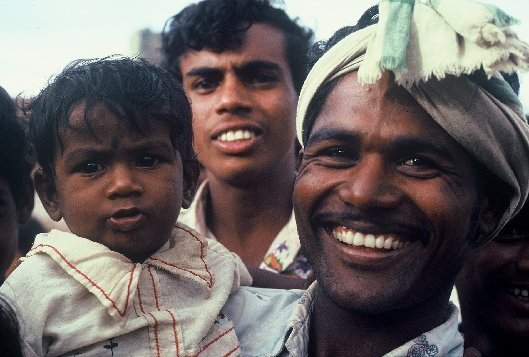
When I remember India, I don’t think of poverty or disease—although there surely was a abundance of both.
I remember an exuberance of color and of joy—of kindness and acceptance, even in remote villages unaccustomed to Western visitors.
And I remember the answer one of our guides gave to a member of our group, as we were about to tour another temple: “Why do you people have so many gods?” he asked. “You’ve got monkey gods and elephant gods and bull gods and…”
Our amused guide smiled warmly and answered without anger or irritation.
“Because, sir,” she said, “in India we see God everywhere.”
When I remember India, I think of love.
The best kind of love?
Unconditional, of course…especially of those who are “the other.”

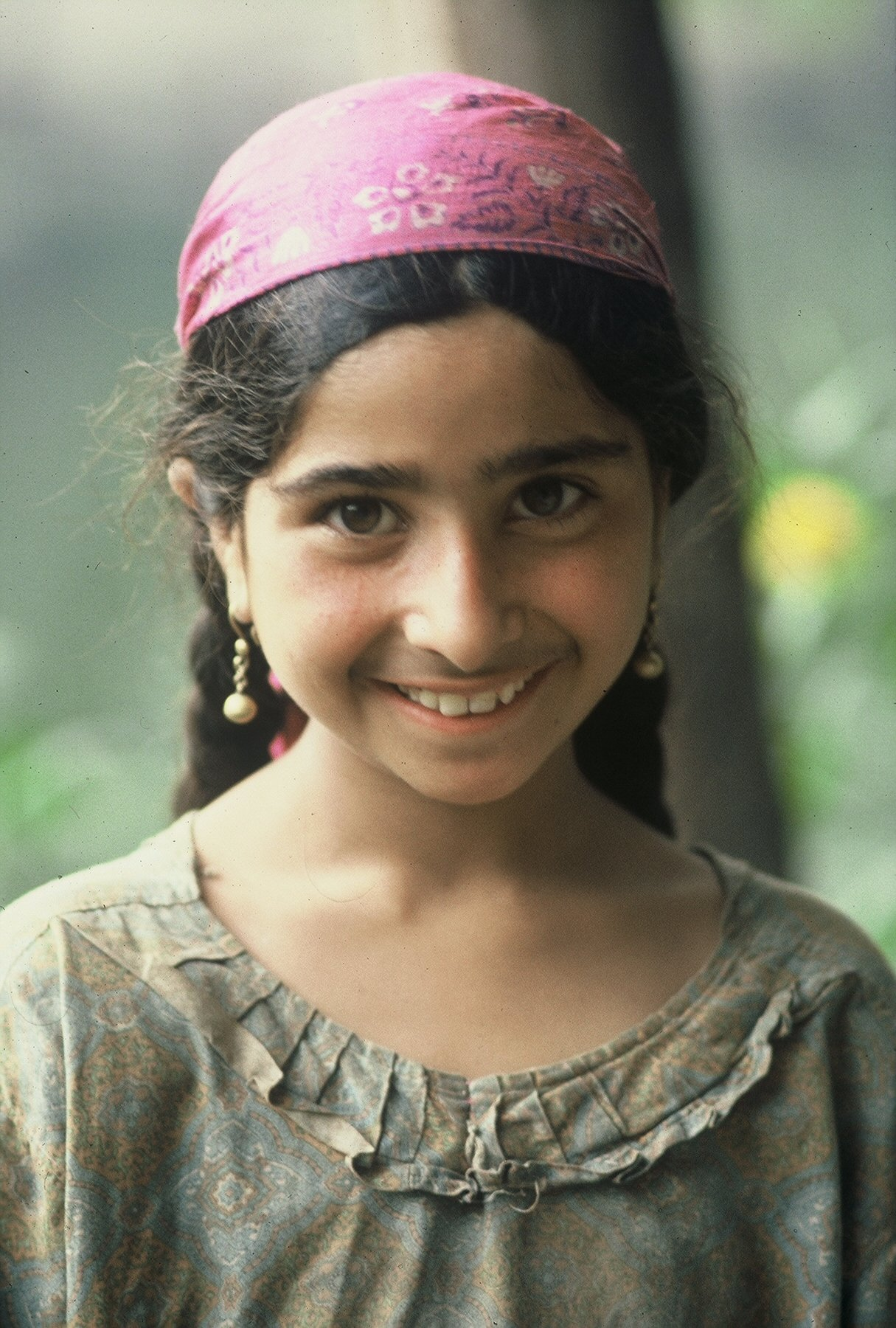
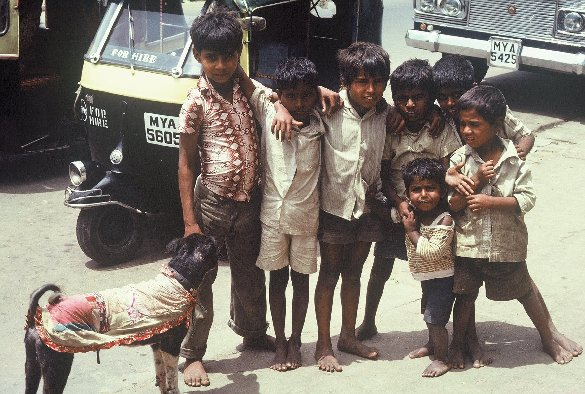
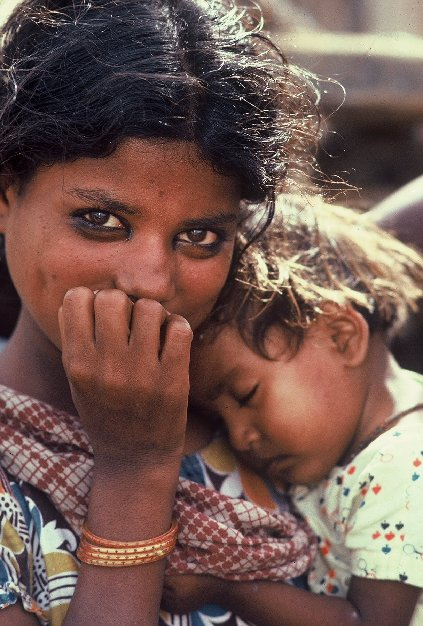
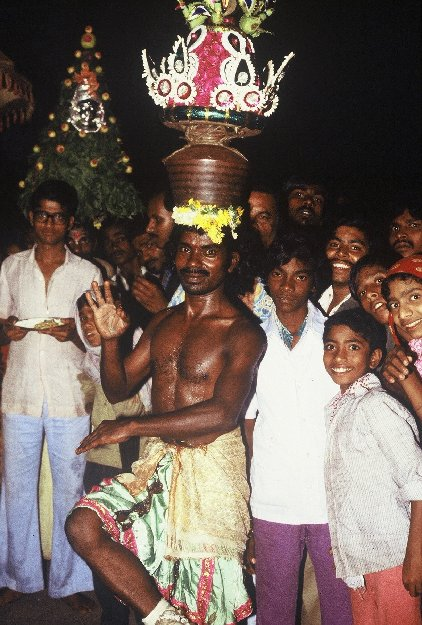
♥ ♥ ♥ ♥ ♥ ♥ ♥ ♥ ♥ ♥ ♥ ♥ ♥ ♥ ♥ ♥ ♥ ♥ ♥ ♥ ♥ ♥ ♥ ♥ ♥ ♥
Hungry for Love
by Sheila Wright
What kind of love is best? Oh, had I only kept a diary and answered this one question at the end of each year. What a Rorschach of a memoir I would have. Pretty sure that this year’s description would be different from the first entry, or the years that would say unconditional love, sexual love, sibling love, first boyfriend love and best friend love. It would have taken me a while to figure out self-love. Oh, I might have gotten caught up in selfish love (it’s all about me), but I was a slow learner when it came to self-love. I’ve had love with God and a guardian angel, love without God, love lost to hate and anger, love found in childbirth, love found in family. Love found in the ocean, but lost in the tide. You name it, and I’ve tasted it.
When I go to the LOVE Store, I look for what I need at that moment. It’s a bit like shopping. Walking into the store feeling a bit sprite-ish and upbeat, witty and a tad ironic, I choose the tart Granny Smith. Some days it’s a Granny Smith kind of love I’m looking for. Other days, feeling all New England preppy and a bit uppity, it’s the Macouns that tumble into my cart. When I need a little nurturing, I wrap my coat around me and bring home a Jonathan Gold apple pie. Rarely do I have an urge for a gooey, sticky apple on a stick with caramel – I’m not much for the having my jaws stuck in sentimental woe.

As you can see, this quest for the best kind of love—choosing one over many— has led me to the grocery aisles. Trust me, I’m not commitment averse. But the choice of so many types of love, like items on a shelf, unsettles me.
Look at this guy. He’s stunned by the choices of good old Campbell soup. How is he ever going to choose which kind of love is best?

This poor guy has it narrowed down to just one brand. But the brand is like an Aspen, all gnarly underneath the red and white can, branches and roots spreading into cream of tomato, tomato with rice, tomato bisque, Italian tomato, tomato with beef. “But I don’t know what I like best; I don’t know what is best for me. I liked it better in the old days when there were fewer choices,” moan the lover and the soup selector both.
Speaking of fewer choices, do you remember when the lover simply looked for a Trojan? Not fresh and sexy, promising ecstasy, intensity or getting charged? All we know is that the lover is not looking for a baby as a focus of love.

I haven’t come close to offering my thoughts on the best kind of love at 10, 20 , 40, 60 or beyond. But after perusing the choices at the local grocery story, I think my best kind of love is the type that feels right at the time—an intuitive type of love, that does its best with what it’s got right then, with what it needs, what it can see, at that moment. And then it becomes a love that transforms—out of that moment and into the next.
♥ ♥ ♥ ♥ ♥ ♥ ♥ ♥ ♥ ♥ ♥ ♥ ♥ ♥ ♥ ♥ ♥ ♥ ♥ ♥ ♥ ♥ ♥ ♥ ♥ ♥
Love Is A Song — or Eight
by Kelly Ann Compton
Once upon a time, a young woman named Princess Ella lived in the village of Musical where true romance always bloomed into everlasting love.
While the apple trees were dormant, Princess Ella stood by her window singing, “Will I ever know . . . the sweet ‘hello’ . . . that’s only meant for me?” She yearned. She prayed. She sought. And, sometimes, she thought she’d found.
After finding herself in an unrequited romance, she decided, “Me deep in love’s only half of what I’m longing for now . . . why couldn’t there be somebody being in love with me?”
The apple trees were in blossom when she first saw him—Prince Cee Major. Her heart beat faster when she saw his look of admiration. Their eyes and hearts connected and the village of Musical came alive with song, “Can you feel the love tonight? The peace the evening brings the world, for once, in perfect harmony with all its living things.” Princess Ella and the Prince began sparking with quiet dinners and long walks beneath the always full and bright moon. They held hands, gazed into one another’s eyes, and kissed. They didn’t dare go further for this is a fairy tale!
Everything moved along beautifully until one day, Princess Ella knew something was not quite right. Her singing questioned, “He’s holding back, he’s hiding. But what, I can’t decide. Why won’t he be the king I know he is, The king I see inside?” She held his hand tighter, gazed into his eyes longer, and kissed him more often, all the while praying he’d believe in his own beautiful potential. Princess Ella began asking herself if she was doing right by him. Recalling the wonderings of another woman in love, she sang, “I don’t know how to love him.”
As the blossoms grew into apples, the spirits of Prince Cee Major and Princess Ella settled into one another and their hearts became united in love. They ate only at restaurants where The Four Aces played, for they loved that gorgeous harmony voicing, “Yes, true love’s a many splendored thing.”
Apples ripened, and love took a definite hold on them. Prince Cee Major popped that ever lovin’ question “Will you marry me?” and Princess Ella, looking deep into his eyes, saw true, unconditional love. She answered yes and broke into her favorite chorus, “ . . . Cause I love you more than I could ever promise. And you take me the way I am . . . “
As the apples were harvested and became jellies, pies, ciders, and wines, Prince Cee Major and Princess Ella’s life together ripened with bountiful harmony. Oh, there were fractious moments, for all love has it dings, but during those times they drank a bottle of apple wine. Then, sitting at the piano, Prince Cee Major would play the left hand, Princess Ella the right, and holding hands in between they would sing, “You’ve got to give a little, take a little. And let your poor heart break a little. That’s the story of, that’s the glory of LOVE.”
Epilogue: While fairy tales don’t allow things to “go further” before the wedding, after the wedding those flying sparks took hold and Prince Cee Major and Princess Ella lip synced in unison, “I’m too sexy for my love, too sexy for my love.”
THE END.
The songs:
“Being in Love” by Meredith Wilson from the 1962 movie version of The Music Man
“Can You Feel the Love Tonight” music by Elton John, Lyrics by Tim Rice from Disney’s 1994 The Lion King
“The Glory of Love” written by Billy Hill, 1936. Lyrics copyright held by Universal Music Publishing Group, EMI Music Publishing, Shapiro Bernstein & Co., Inc.
“I Don’t Know How to Love Him” music by Andrew Lloyd Weber, Lyrics by Tim Rice from Jesus Christ Superstar, 1970
“I’m Too Sexy” by English pop group Right Said Fred, written by Fred Fairbrass, Richard Fairbrass, Jimi Hendrix, and Rob Manzoli. Originally recorded 1991.
“Love Is A Many Splendored Thing” music by Sammy Fain, Lyrics by Paul Francis Webster.
“The Way I Am” written by Ingrid Michaelson from her album Girls and Boys, September 2007.
“Where is Love” Music and lyrics by Lionel Bart, from the 1960 musical Oliver!
♥ ♥ ♥ ♥ ♥ ♥ ♥ ♥ ♥ ♥ ♥ ♥ ♥ ♥ ♥ ♥ ♥ ♥ ♥ ♥ ♥ ♥ ♥ ♥ ♥ ♥

20 replies on “What kind of love is best?”
Dear Pen Women,
I love!! what you have blogged. I am filled with admiration at the poetry, the short stories, the photographs; the romance story from Kelly Ann. Love me when I tell you I have no idea what I am doing or supposed to do to be a blogger! I am skilled in so many ways but they are all obsolete in 2014. Would that I could re-enter my mother’s womb and come out again in 2014 with an app in one hand and computer skills in the other.
Being part of pen women, working with pen women,selling my memoir and winning a contest at Englewood Library have given me new respect and love for my parents. I thought they were mean and unloving, but as I read and re-read my own story, I’ve come to recognize that my parents are like all parents: they made mistakes and had some cultural hang-ups. The autistic child’s parents used love and trial and error to assist their child in an enlightened society. My parents were trying to stay alive miles away from loved ones on a Nebraska farm without a shred of societal assistance. That’s heroic, and I wish I had recognized that sooner and told them how much I loved them. To love and be loved is the greatest gift of all.
So true of India, as least the part I know and love. The darker side of India reminds us to love the basic things in life and to glow in the light.
Ann, Your #4 touched me deeply. Isn’t it funny how love is always in the present although life continues to move on. This was beautiful–
I enjoyed all the posts, they captured Love’s expression in all kinds of forms. Yep–
Virginia, after reading your work here, there were so many things that hit me. One was having no love for your self is really SELF HATE. That’s the truth! thanks for this…
Ruthy, unconditional love is healing. This really does show that–
I read Son-Rise, too. It made an impact on me as well!
Ann K., my favorite of your poems is #2. Partly because I grew up with that song, and partly because I just do! It resonates with me. Thank you.
I was captivated by the story about the autistic boy and his parents’ home therapy.
Love heals everything but loss. I ache for a loved one when I smell his coat hanging next to mine or open a dresser drawer. I cannot give away the last trace of his living and loving even though my children think I need my head examined.
Sophia, I am touched by your comment about Son Rise. And I hear you: love heals everything except loss. You children think you need your head examined! What a wonderful head it is, so enthusiastic about life and so honest about your feelings.
This is so exciting–reading these posts and the comments, I feel like a door has opened–everyone coming out with what’s in their hearts (and such educated hearts).
Sophia, your comment touched me. Such honesty.
Ann, I love your poem more each time I read it. You may make a poetry lover of me yet!
Virginia, how important and profound it is what you wrote about self love.
Thank you for these posts. With the advent of Photoshop and other computer enhancement tools, it has become more difficult for young girls to accept what real bodies, in real life are. As I age, I am trying to embrace the reality of what my body looks like, and am trying to promote the ethos of “Real Faces” on aging bodies, too!
Virginia, your use of the word “virile” is unusual. The interesting thing is, there’s really not a female equivalent—or at least I can’t think of one… feminine, womanly, fertile…nope.
There is no female equivalent to the word “emasculate” either.
Well said, Virginia.
Sounds like a wonderful book. I haven’t read it but I must!!!
What a interesting book. The parents connected to the child with such amazing love. I haven’t read it. But I want to go out and buy it.
What a pleasure it was for me to remember this, and then go and watch clips of the Kaufmans and Raun in their recent incarnations. I got inspired all over again and started to think outside the box about some of the people in my life whom I am trying to help.
My best friend’s son was diagnosed with autism around 1970. I remember reading Pathway to Madness (Jules Henry I think) at the time. The mothers were all blamed for the autism…food was too hot, mothers not caring, mothers this, mothers that….
We all had kids about the same age and Mark grew up with all of them. Moved to a group home. Now stacking counters at a chain store. I remember Sun-Rise also. None of us could believe the parents’ love and determination.
I, too, loved the story of Son-Rise. It was quite inspiring and definitely made an impact on my teaching.